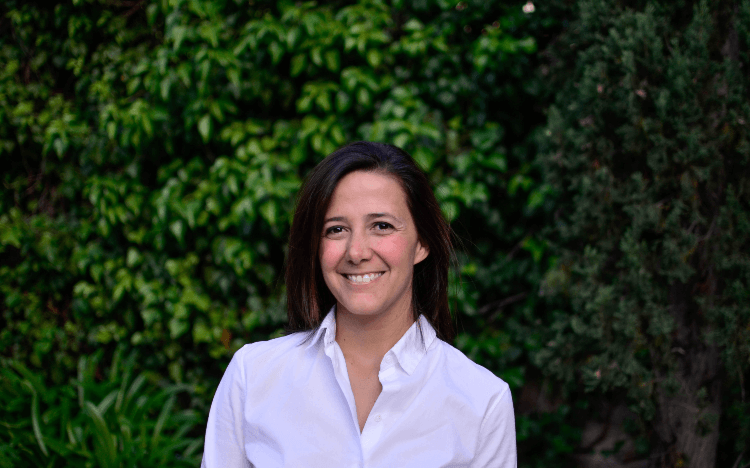An EMBA graduate from Argentina's IAE Business School and participant in the eWorks EdTech Accelerator Program run by Esade Business School's Esade Entrepreneurship Institute (EEI), Pina founded her EdTech startup, Kimple, back in 2018.
BusinessBecause caught up with Pina to find out more about her entrepreneurial journey and uncover the secret to successfully launching an impact-driven business.
Tell us who you are and what your startup is?
I am an economist passionate about education. I was lucky enough to enter the educational sector more than 10 years ago. I first entered a publishing house in the area of international business development and strategy, then moved to Latin America to develop the publisher’s digital strategy.
Four years ago, I decided to generate a little disruption in the educational sector with Kimple. After my experience in publishing, I realised that skills education needed a new model that was a little more disruptive to face the current challenges in education.
How do we include the current challenges of society within the scope of education? That's what we do at Kimple.
Every entrepreneur has a goal and a problem that they're trying to solve. What was the inspiration that started your journey?
It's all related to the United Nations Sustainable Development Goals (SDGs).
How do we bring those SDGs into reality in terms of new types of behaviour in society, new ways of consuming, new ways of producing, gender equality, diversity, coding, social entrepreneurship, emotional learning, etc.
We aim to help schools to implement those subjects in a cross-disciplinary model. We don't need to have a new subject called ‘SDG’ or ‘sustainability’. We can learn sustainability from math and science, for example, when it's integrated properly.
So our goal is to match current challenges with curricula.
What stage were you in your career when you came across this idea and decided to pursue it?
It comes from that time in Latin America. I visited thousands of schools and we implemented traditional digital learning programs from the publishing house. I realised after a couple of years of implementing them that the schools needed something more, something to help them to face these challenges.
When I asked teachers about their challenges at school, they always said things like: ‘How can we open the classroom to what's happening outside of it? How do we develop students’ skills when textbooks don't help us to face those challenges? Who helps us with this new way of learning if we don’t have the time or the training?’
These are global challenges as education is moving more and more towards globalisation, so that is where I saw there was a need for this from schools everywhere. So we thought about how we could make a scalable model for the classroom.
How did business school impact your journey as a founder?
There were two ways. Mainly it was by asking how can we implement the way that you learn during an MBA into schools?
The first learning experience I had during my EMBA was where they taught me critical thinking—they asked me questions the whole time instead of answering my questions. That learning experience opened my mind, so I said, why don't we bring this way of learning to schools.
It’s such a small number of people who can access an MBA and this method of learning is really needed to have the scope to unlock your potential.
The EMBA was also where I discovered my entrepreneurial spirit. I entered many workshops and had many experiences. I also won an entrepreneurial hackathon, so I discovered that I wanted to try out being an entrepreneur.
I discovered my potential for entrepreneurship and unlocked my fears.
What advice would you have for business school students or anybody else aspiring to become an entrepreneur today?
I'm very into social entrepreneurship, so I would say try to promote social entrepreneurship. Nowadays if you stick purely to business, that time has gone.
You have to do business with a purpose. Ask what positive impact are you creating in society? And make that core to your project.
Given the hard times we go through being an entrepreneur, I would suggest you also need a very clear and deep purpose and you should know what positive impact you are making.
How important do you think it is to make an impact as a startup founder?
It gives you bravery. It gives you the gravity to disrupt if you have a clear purpose. If you believe it's important, and if you believe it's positive for people, then go ahead and do it.
Next Read:
Entrepreneur Interview: Serial EdTech Founder Reveals The First Step In Launching A Business







